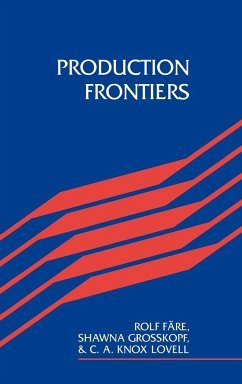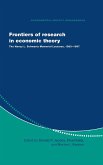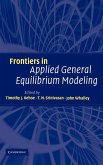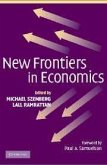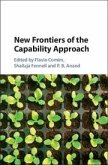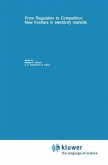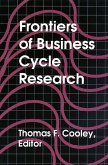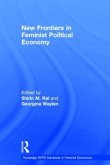This book presents a mathematical programming approach to the analysis of production frontiers and efficiency measurement. The authors construct a variety of production frontiers, and by measuring distances to them are able to develop a model of efficient producer behaviour and a taxonomy of possible types of departure from efficiency in various environments. Linear programming is used as an analytical and computational technique in order to accomplish this. The approach developed is then applied to modelling producer behaviour. By focussing on the empirical relevance of production frontiers and distances to them, and applying linear programming techniques to artificial data to illustrate the type of information they can generate, this book provides a unique study in applied production analysis. It will be of interest to scholars and students of economics and operations research, and analysts in business and government.
Table of contents:
1. Introduction; 2. Production technology; 3. Input-based efficiency measurement; 4. Output-based efficiency measurement; 5. Indirect input-based efficiency measurement; 6. Indirect output-based efficiency measurement; 7. The measurement of price efficiency; 8. Graph efficiency measurement; 9. Efficiency measurement and productivity measurement; 10. Topics in efficiency measurement.
This book develops models of efficient producer behaviour, and introduces ways of measuring various types of inefficient behaviour. Using mathematical programming techniques, the authors present a unique study in applied production analysis.
This book defines and develops measures of various types of inefficiency in production
Table of contents:
1. Introduction; 2. Production technology; 3. Input-based efficiency measurement; 4. Output-based efficiency measurement; 5. Indirect input-based efficiency measurement; 6. Indirect output-based efficiency measurement; 7. The measurement of price efficiency; 8. Graph efficiency measurement; 9. Efficiency measurement and productivity measurement; 10. Topics in efficiency measurement.
This book develops models of efficient producer behaviour, and introduces ways of measuring various types of inefficient behaviour. Using mathematical programming techniques, the authors present a unique study in applied production analysis.
This book defines and develops measures of various types of inefficiency in production

